Few more days and, with the first warmth of spring, the land of Cicerale will be ready to welcome the humble and precious chickpeas, that for centuries have intertwined their seasonal phases with the history of an entire community of Cilento. Risking to slowly disappear as that got thinner, impoverished by emigration that pulled its sons off from the solid peasant roots. Among the many, Giovanna Voria had been no exception.
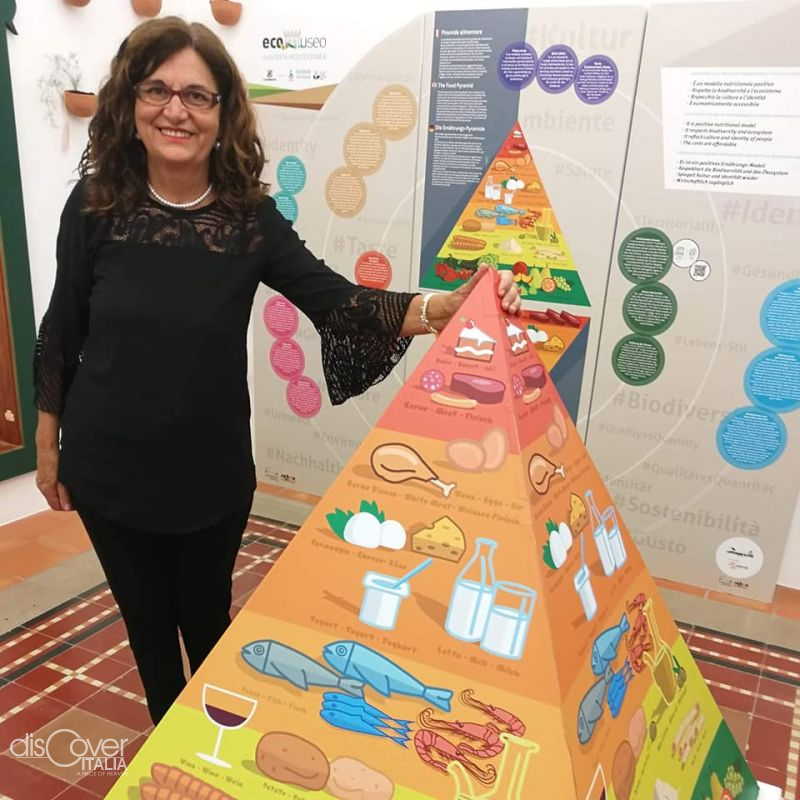 After marriage She moved, definitely not as far as many others, in Agropoli, but far enough to leave behind the land cultivated for generations and all its products, chickpeas as well.
After marriage She moved, definitely not as far as many others, in Agropoli, but far enough to leave behind the land cultivated for generations and all its products, chickpeas as well.
The marble production sector where she became an entrepreneur had nothing to do with her previous life. But still she kept her memories, ancient knowledge and the proud awareness of having peasant origins.
Terra quae cicero alit, land that feeds chickpeas. The motto matches the image picturing a plant of chickpeas climbing a graminacea that stands on Cicerale’s Crest, claiming a past in common with the legume that gave its name to the hamlet. Thanks to a land that offered optimal clay for tile builders and ideal conditions for the growth of chickpeas famous for its diversity. Smaller but very tasty, among fields of vineyards, olive groves and flower gardens, it was usually grain’s loyal companion with whom it shared the same harvest time in summer.
Essential for every family, just like grain, every *“Ciceralese” had it in its field. Giovanna’s family as well, handing its unique variety of good seeds from generation to generation.
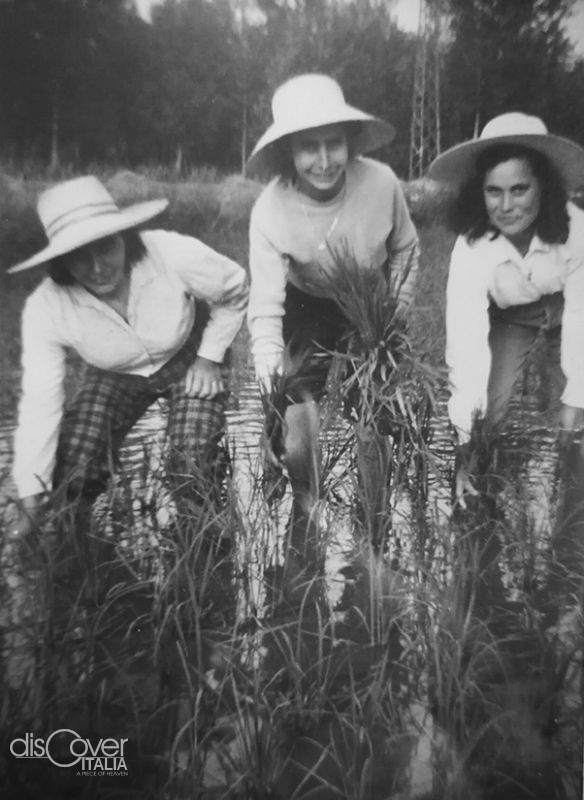
Giovanna’s mother was able to sow chickpeas just before departing for Piemonte, every year, in late spring. «I was fourteen months old when mom went for the first time in Vercelli to work the rise fields – she tells- with another woman from Cicerale. She stayed away from the start of May to the end of June to harvest rice. She kept on going the following years too with a growing number of women, even forty once. They were the *“mondine” from Cilento, sacrificing themselves for the sake of their families. They were good at working rice fields because back in the day We used to sow rice here too, in Sele’s plain. I remember that mom used to send a pack for her boss in the north for Christmas, filled with chickpeas and figs, our specialties». Other specialties were born in the kitchen, from the skills with which her mother and grandmothers transformed simple products of the earth, daily gathered around the house, different with every season.
The choices and familiar gestures of her mother and grandmothers, so regular to be nearly taken for granted, are the “imprinting” on which Giovanna has built her new life, when at the New Millennium’s eve, she decided to change. A radical turning point compared to how much she achieved after twenty-five years far from her family’s fields. When she decided to come back, to cultivate them in the first place, she had a small chickpea in her mind that no one was using anymore, slowly disappearing from the same country that was dedicated to him. Thus, the “agriturismo” project, started with courage and determination, in her family’s farmhouses, had as goal the recovery of the chickpea of Cicerale, that she started sowing around her house in 1999.
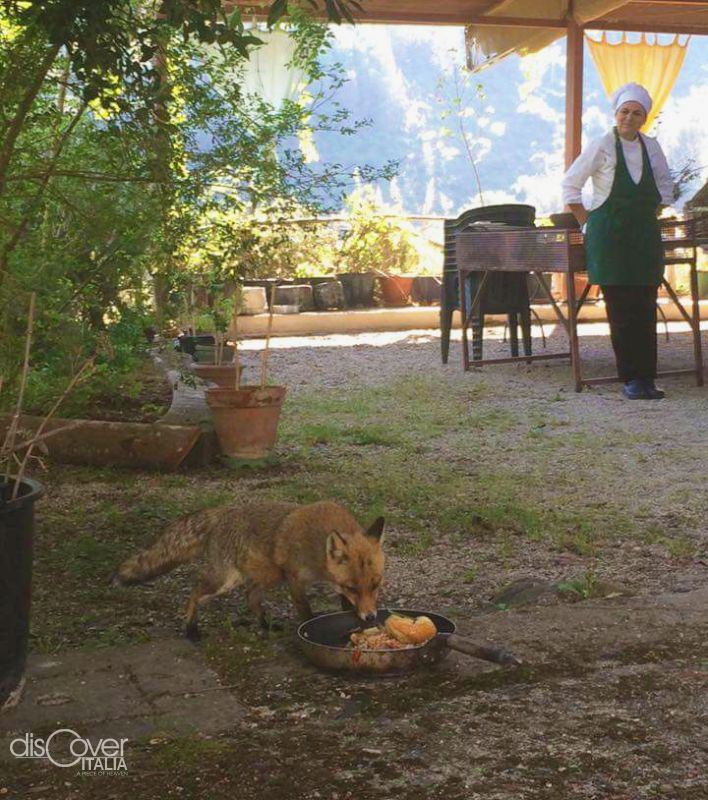
«We opened the agriturismo in June 2001 and already in July we had a BBC troupe called “Linea Verde” coming over for a reportage about Cilento -Remembers Giovanna- They had to spent just one day with us but they stayed for an entire week eventually, they were very interested in the history of our chickpeas and our way to cook all the products of the earth. “You’ve gold in your home, why don’t you write a book?” They asked me, but not everybody agreed. No one would’ve bet a penny on my idea of chickpeas and peasant kitchen, where instead of meat or modern food wild herbs are protagonists».
The interests from English people for Giovanna’s chickpeas, however, attracted the attention of the mayor of the time, which with the current mayor that was only city councilor at the time wanted these foreign guests to come to Cicerale. «One day they offered me to buy, as municipality, part of the harvest so that they could make bags to give to each resident, giving who wanted to, the chance to cultivate it. I accepted immediately and some of them decided to sow it right away. So, little by little, the cultivation of our chickpeas restarted, even if many for personal use only. Ideal terrains are mostly steep, the cultivation is done by hand, production costs are very high and the effort is great, but today in Cicerale there are six producers of chickpeas. That I thought they could become “presidio Slow Food” since the beginning»”.
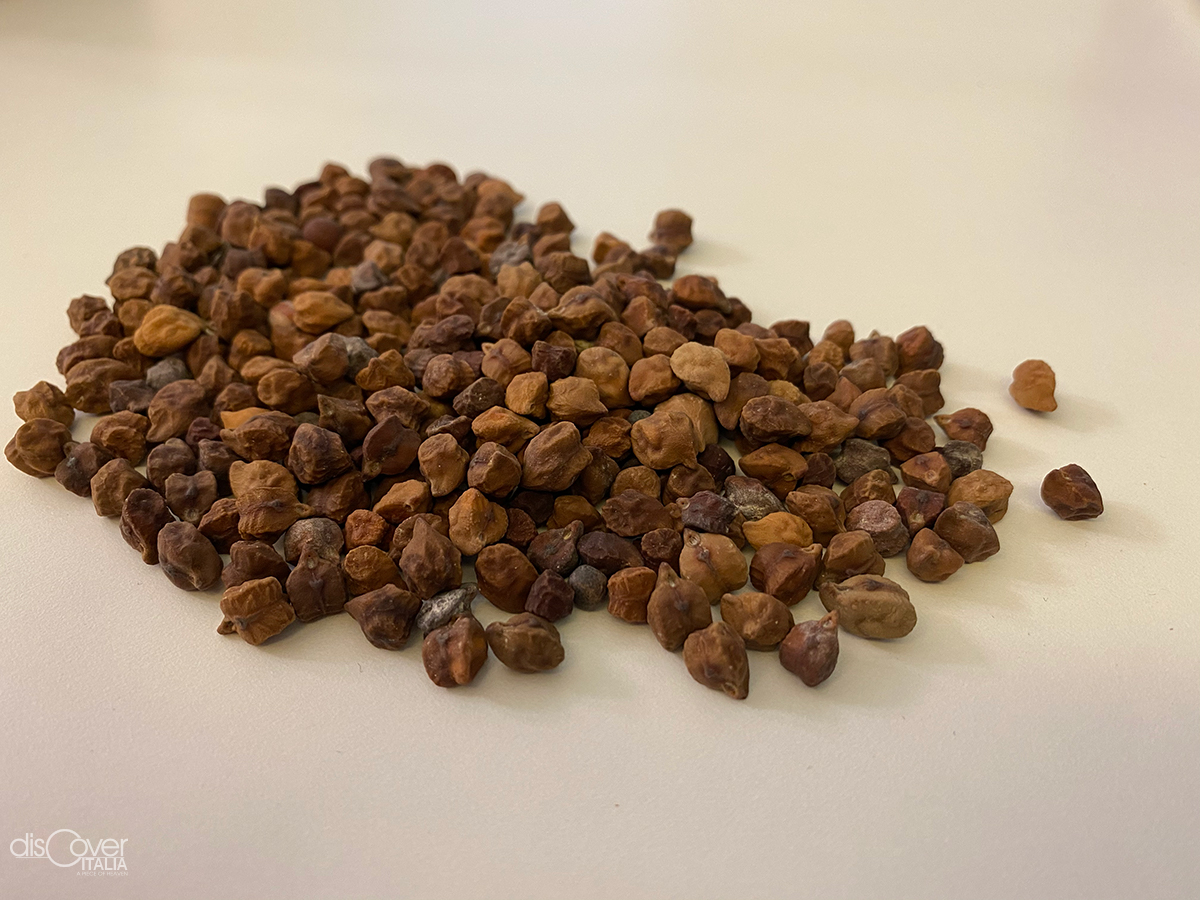 Willing to give her best in the hospitality field, Giovanna started studying again. With the same enthusiasm and willpower that come up from her passionate storytelling: «at 50 years of age I wanted to take the hospitality diploma because I felt the urge of giving professional foundations to my knowledge. Since then, I attempted about sixty courses on nutrition to enrich my knowledge, even if my mother and grandmother’s teachings remain fundamental. You have to study to improve, even with just meetings and exchanges with different cultures and experiences. This is what my courses around Italy and abroad offer me. I always bring chickpeas from home, obviously».
Willing to give her best in the hospitality field, Giovanna started studying again. With the same enthusiasm and willpower that come up from her passionate storytelling: «at 50 years of age I wanted to take the hospitality diploma because I felt the urge of giving professional foundations to my knowledge. Since then, I attempted about sixty courses on nutrition to enrich my knowledge, even if my mother and grandmother’s teachings remain fundamental. You have to study to improve, even with just meetings and exchanges with different cultures and experiences. This is what my courses around Italy and abroad offer me. I always bring chickpeas from home, obviously».
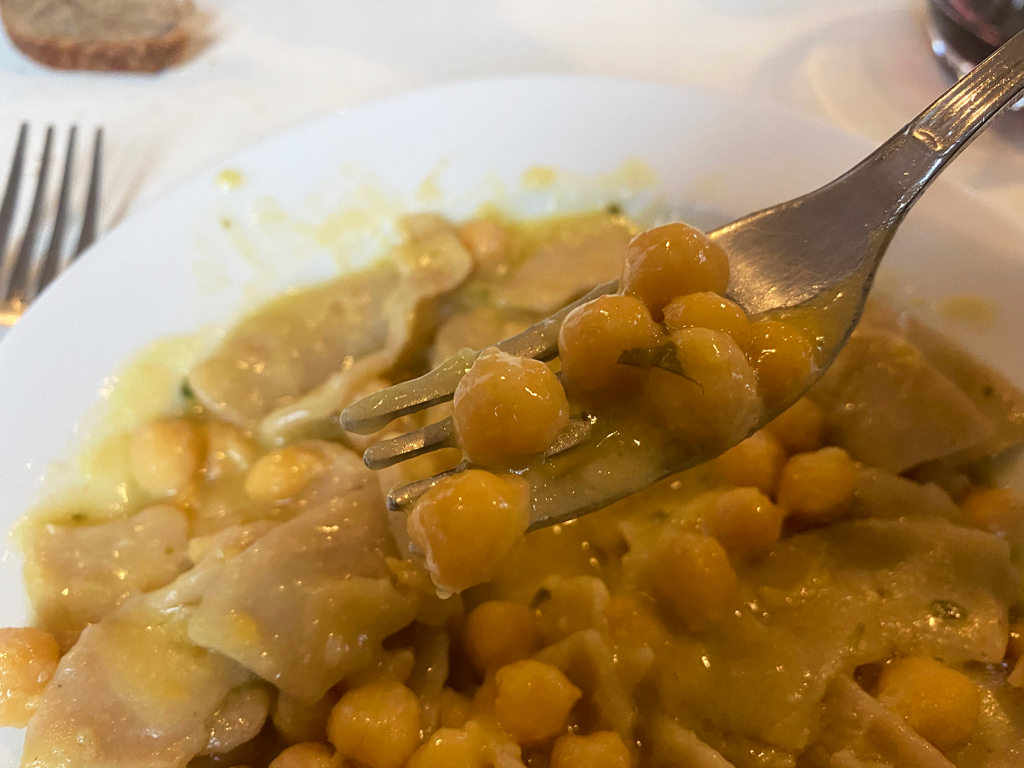
It couldn’t be avoided, given the success of her book with more than two hundred recipes based on chickpeas, main ingredient of her kitchen: «I’ve made entire menus with chickpeas, from starters to desserts – explains the peasant chef, how she defines herself- traditionally here in Cicerale they were served with lagane (pasta made with durum wheat) or with soup, I also make ice cream, liquor and even coffee that I made with wine or chocolate flavor. I also grow other rare qualities of chickpeas, like the brown ones. In my personal opinion there are five essential points while cooking: quality products, simplicity, a good extra virgin olive oil, fantasy and love».
Fantasy and love were necessary to continue and hit the target as “presidio Slow Food”, one of the 14 that Cilento alone counts over the 20 in the entire Campania. It’s certainly not a coincidence in the land that for fifty years is home to the Mediterranean Diet, UNESCO heritage. «When in 2010 we received UNESCO acknowledgement – tells Giovanna- I was very excited. My idea of cooking that here no one understood at the beginning, finally founded an important response. It gave me the strength to go forward. As from the encouragement from the many guests that over the years came to us to eat or to spend time for themselves and rediscover genuine flavors and healthy foods ».
Student of Ancel Keys and his team work, including the cardiologist Jeremiah Stamler that was guest at her restaurant, Giovanna became an effective popularizer of the Mediterranean Diet: «The one Keys studied as base of the famous food pyramid -tells the chef- is the “poor “diet of the peasants, who used to eat meat only during important festivities over the year, who preferred a single dish with many vegetables and that used only extra virgin olive oil and not the fancy one. It’s a healthy lifestyle, testified by the longevity of our elders, that I love to share around and explain in schools. It’s a great satisfaction watching them attentive and taking part to the conversation, making them appreciate the magnificent eight, our legumes, our wild herbs, and the “cacioricotta” from our land». Thanks to her commitment, the museum of Pioppi nominated her Ambassadress of the. Mediterranean diet in the world in 2017. Giovanna Voria, strengthened from the reputation obtained around the world, keeps on sharing the peasant culture of her territory and the excellences representing it everywhere she goes. Who better than her, that successfully managed to give a new life to the rare chickpeas of Cicerale?
{SCOpenGraph image=https://discovercampania.it/images/CILENTO/ceci.jpg}

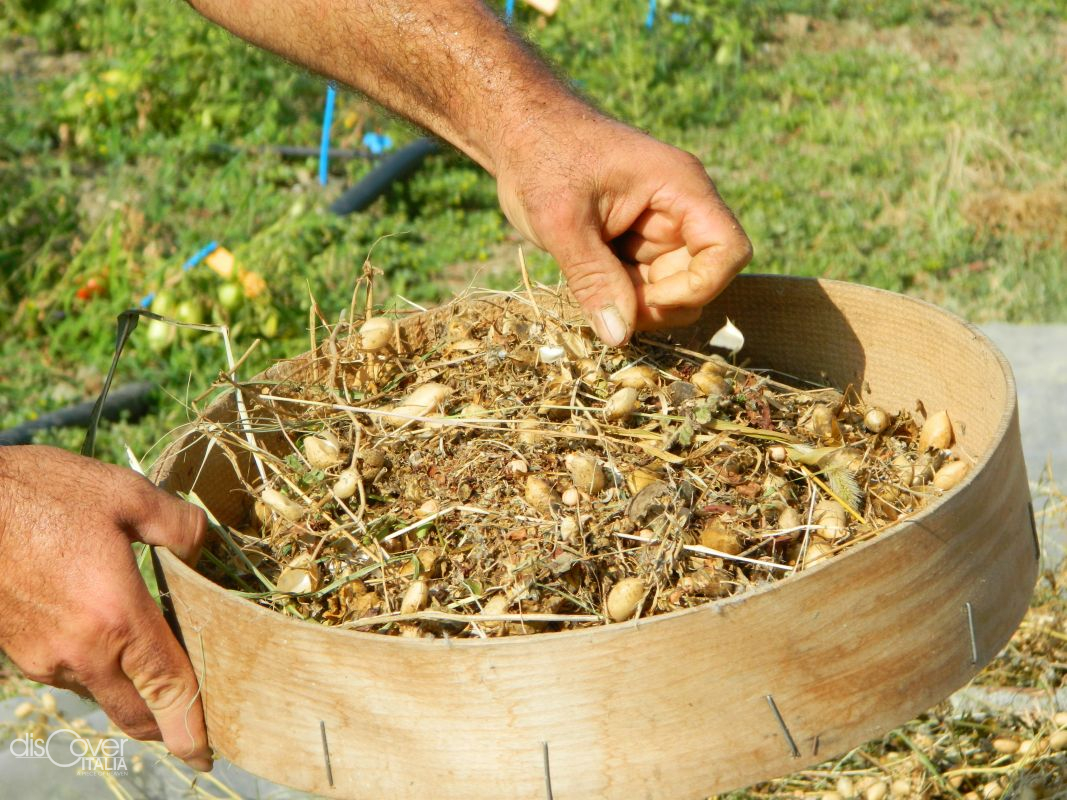

Comments powered by CComment